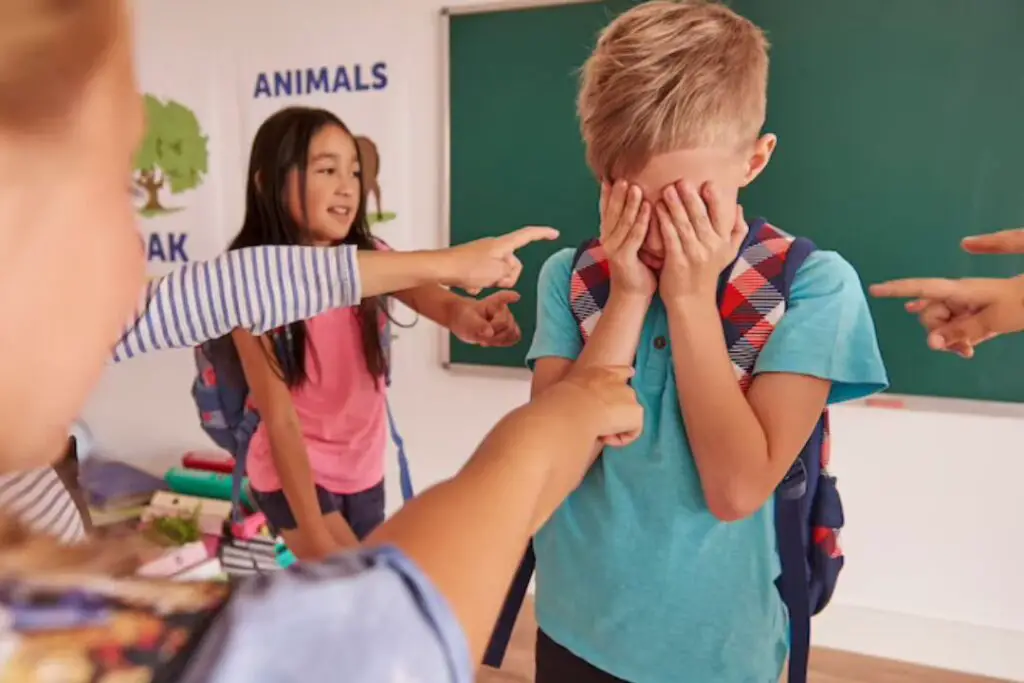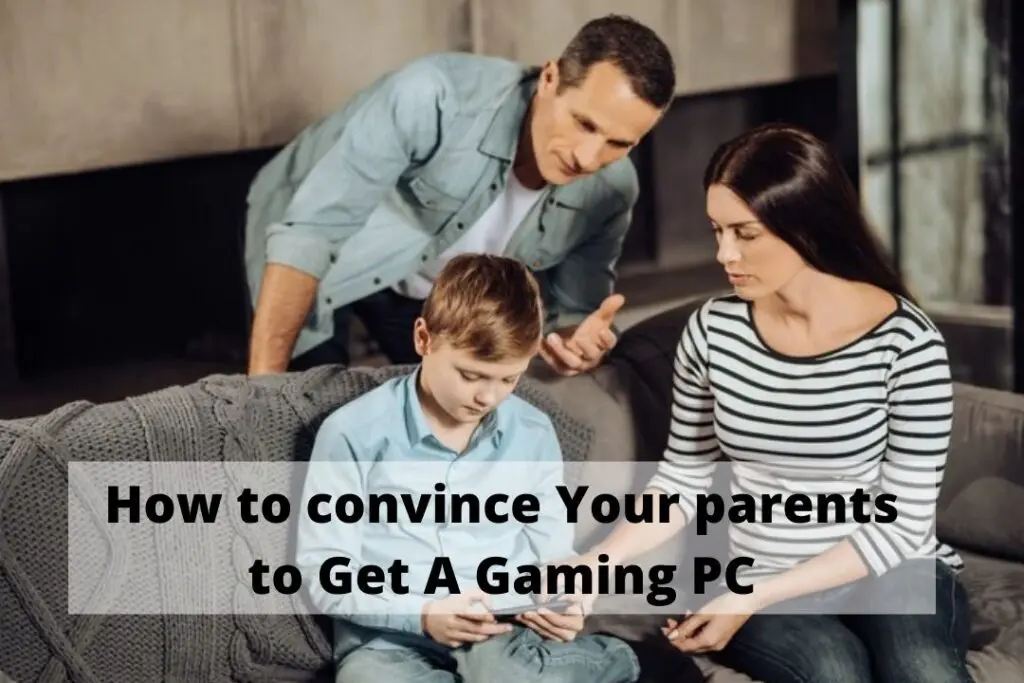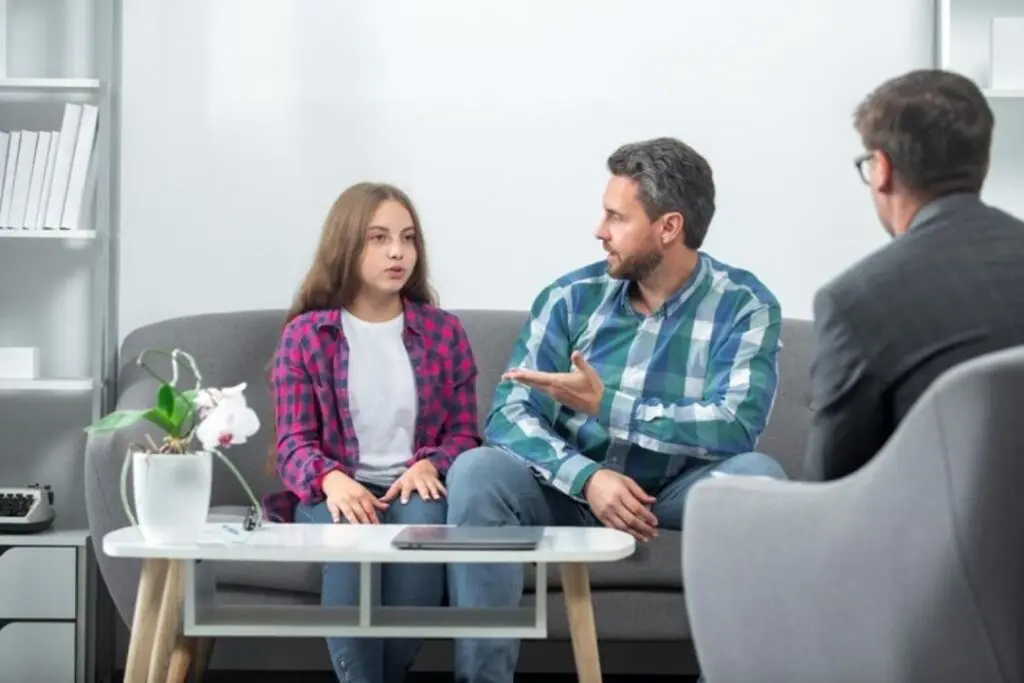Do you remember when you were in school? Did you love going to class, or did the idea of sitting in a desk for hours on end make you feel sick? If you’re like a lot of people, you probably have a mix of thoughts and feelings about school. Some kids, on the other hand, feel nothing but fear and anxiety when they think about going to school. Why do kids hate school so much? It’s a question that people keep asking, but there’s no easy answer.
In this blog, we’ll talk about some of the reasons why kids don’t like school and give ideas for how to make school more fun and rewarding for everyone.
Read More: When Do Kids Start Preschool?
How many children hate school?
It’s hard to say how many kids don’t like school because it depends on so many things, like their age, where they live, their socioeconomic status, and their own personal situations.
But studies have shown that a large number of kids have trouble with anxiety, stress, and burnout at school.
In a survey done by the American Psychological Association in 2021, nearly one-third of teenagers (30%) said that their schoolwork was too much for them, and 27% said that stress made them feel sad or depressed. Other studies have found that up to 20% of kids bullied at school, which can make them dislike school and have a bad effect on their mental health.
Root Causes
Why do kids hate school so much? It’s a question that people keep asking, but there’s no easy answer. You can read these six root cause:
1. The Pressure to Perform
Why do kids hate school? It’s not a secret that our education system puts a lot of emphasis on how well students do in school. From a young age, kids are expected to get good grades, do well on tests, and do well in activities outside of school. Some kids do well with this kind of pressure, but others find it hard to keep up, and the results can be bad.
Pressure to do well in school can cause stress, anxiety, and burnout in many kids. They might feel like they’re never good enough, like they’re always being judged, and like their self-worth depends on how well they do in school. This kind of stress can hurt their mental health and well-being, and it can even make them hate school.
So, what can we do to make this stress go away? One way to solve this problem is to put less emphasis on grades and competition and more on making people love to learn. Kids can encourage to explore their interests, ask questions, and make mistakes without fear of judgment.
Teachers can help by making the classroom a place where all kids feel welcome and safe to be themselves and take risks. By putting more emphasis on curiosity and growth instead of performance, we can make school a more positive and fulfilling experience for everyone.
2. Trouble Learning
Some kids may not like school because they have health problems that make it hard for them to learn. No matter how hard they try, these kids might feel frustrated and down, which could make them dislike school. “Hating school is really just frustration at being a step behind,” says psychologist Harvey Mandel.
Vision problems are a common physical problem that can make it hard to learn. Even if a child has 20/20 vision, he or she may have trouble focusing their eyes or have blurry vision. Optometrists can check how well you can move your eyes, focus, see depth, and do other things to see if there is a problem. In the same way, a child’s ability to learn can be affected by hearing problems. If your child has trouble with letter sounds, gets confused between words that sound the same, or keeps asking the same questions, you might want to make an appointment with an audiologist.
Children with learning disabilities may also feel frustrated and find it hard to finish their homework or remember what they need to know. They might act like they don’t hear the teacher or don’t understand simple facts. In these situations, it’s important to have the school psychologist test the child to see if he or she has a learning disability.
Parents need to be aware of warning signs and act to make sure their child’s physical and educational needs are met. By finding and dealing with these problems early on, kids can get past their problems and have a better school experience.
Read More: What Is The Average IQ Of An 11-Year-Old?
3. Boredom and a lack of engagement
Why do kids hate school? Kids often don’t like school because they are bored or don’t have anything to do. Some kids find it boring and uninteresting to sit in a classroom for hours on end, listening to lectures and taking notes. This is especially true for people who don’t have their learning styles or interests met.
To deal with this problem, teachers can add more hands-on activities, creative projects, and technology to their lesson plans. For example, kids could act out a historical event instead of just reading about it or make a digital presentation about it. We can tap into kids’ natural curiosity and make school more fun by making learning more interactive and interesting.
Teachers should also be aware that kids learn in different ways and have different preferences, and they should change how they teach based on this. Some kids learn best from pictures and videos, while others need to move around and do hands-on activities. By taking these differences into account, teachers can make learning more personalized and open to all students so that it meets their needs.
To sum up, the best way to keep kids from being bored and disinterested in school is to make learning more fun and relevant to their lives. By doing this, we can help them learn to love school and learning for the rest of their lives.
4. Bullying and social pressures
Why do kids hate school? Peer pressure, cliques, and bullying can all be big problems at school, making it a social minefield for many kids. When kids are picked on, left out, or bullied by their classmates, they may feel alone, worried, and unhappy at school. This can make you hate school and even hurt your mind in the long run.
To fight against social pressures and bullying, it’s important to make sure that all kids feel safe and supported at school. You can do by encouraging kindness and empathy, getting kids to speak up when they see bullying, and giving them access to resources for mental health and counseling. Teachers can also help create a positive school culture by showing students how to act respectfully, setting clear rules and consequences, and giving students chances to work together.
Another way to fight social pressures and bullying is to give kids chances to do things outside of school that they are interested in. Extracurricular activities, clubs, and sports teams can help kids who may feel left out in the classroom feel like they belong and make friends. We can help all kids feel valued, respected, and connected to their peers by making the school community welcoming and supportive.
In conclusion, social pressures and bullying can be two of the main reasons why kids don’t like school. We can help all kids feel happier and more engaged at school by making it a safe place where everyone is welcome, promoting empathy and kindness, and giving kid’s chances to pursue their own interests.
5. Loneliness
Why do kids hate school? Children may not like school a lot because they are lonely. It can make kids feel alone and cut off from their peers, which makes them unhappy and less interested in school. Your child may be struggling with loneliness at school if he or she spends a lot of time alone, avoids class trips, or gives away things to try to make friends.
To help your child feel less lonely at school, you should work on improving their social skills. This could mean teaching them how to make eye contact, talk in the right tone, and start conversations with other kids. You should teach your “friendship openers” like “My name’s Harry. What do you have? Do you want to play tag? “Can be helpful as well?
It’s important to remember that children who are lonely often have low self-esteem and may not feel confident in their abilities. You can help your child feel better about himself or herself by pointing out his or her strengths and encouraging him or her to work on their talents. For example, if your child knows a lot about computers, you could tell them to share what they know and work on projects with other people.
Lastly, it’s important to talk to your child’s teacher and other school staff about any worries you have about his or her social health. They might be able to give your child more help and resources to help him or her feel more at home and involved at school. With the right help and encouragement, your child can stop feeling alone at school and have a better time there.
6. Poor Chemistry with a Teacher
Some kids don’t like school because they don’t get along well with their teacher. If your child says a teacher is “unfair” or “mean,” it might be as easy as having lunch with the teacher to make things better. But sometimes you have to do something more drastic. For example, if a teacher is very strict and yells at students until they cry, the child can become anxious and sad.
Parents can start by talking to the teacher and telling them how they think their child feels. If the teacher agrees with what was said, the parents can ask for their child to be moved to a different class. This can help the child have a better attitude about school and do better overall in school.
It’s important to keep in mind that kids don’t always tell the whole truth and can sometimes make things up. So, parents should also talk to the teacher, principal, or guidance counselor to find out more about what’s going on. By figuring out why a child doesn’t like school, parents can work on finding a solution that will help their child feel more at ease and interested in school.
How do I stop my child from hating school?
If your child is having trouble in school and says he or she doesn’t like it, you can do a few things to help:
Figure out the cause:
Talk to your child to find out what it is about school that they don’t like. Is it stress from school, boredom, problems with other people, or something else? By getting to the bottom of the problem, you can solve it better.
Talk to your child’s teachers:
Talk to your child’s teachers about their academic progress, how they learn, and any worries or problems they might be having. Teachers can help your child do well in school by giving them helpful advice and support.
Set up a good schedule:
Set up a healthy routine for your child that includes things like exercise, a well-balanced diet, and enough sleep. This can help people feel better and less stressed.
Encourage activities outside of school:
Encourage your child to take part in activities outside of school that match their interests and passions. This can help them feel more involved in and connected to their school community.
Foster a growth mindset:
Help your child develop a growth mindset by telling them how important it is to work hard, keep going, and learn from their mistakes. This can help them get stronger and deal with problems.
Seek professional help:
Get help from a therapist or counselor if you think your child’s dislike of school is caused by mental health problems like anxiety or depression.
By doing these things, you can help your child feel better about school and get through any problems they might be having.
Conclusion:
Why do kids hate school? In conclusion, there are many reasons why kids might not like school, such as feeling pressured to do well in school, being bored, or being bullied.
But if we deal with these problems and make the school environment more positive and welcoming, we can help all kids feel happier, more engaged, and more fulfilled.
Moreover, we can help all kids develop a lifelong love of learning and a positive view of school by putting less emphasis on grades and competition, making learning more fun and useful, and promoting empathy and kindness. Let’s work together to make school a place where everyone feels curious, grows, and is healthy.





